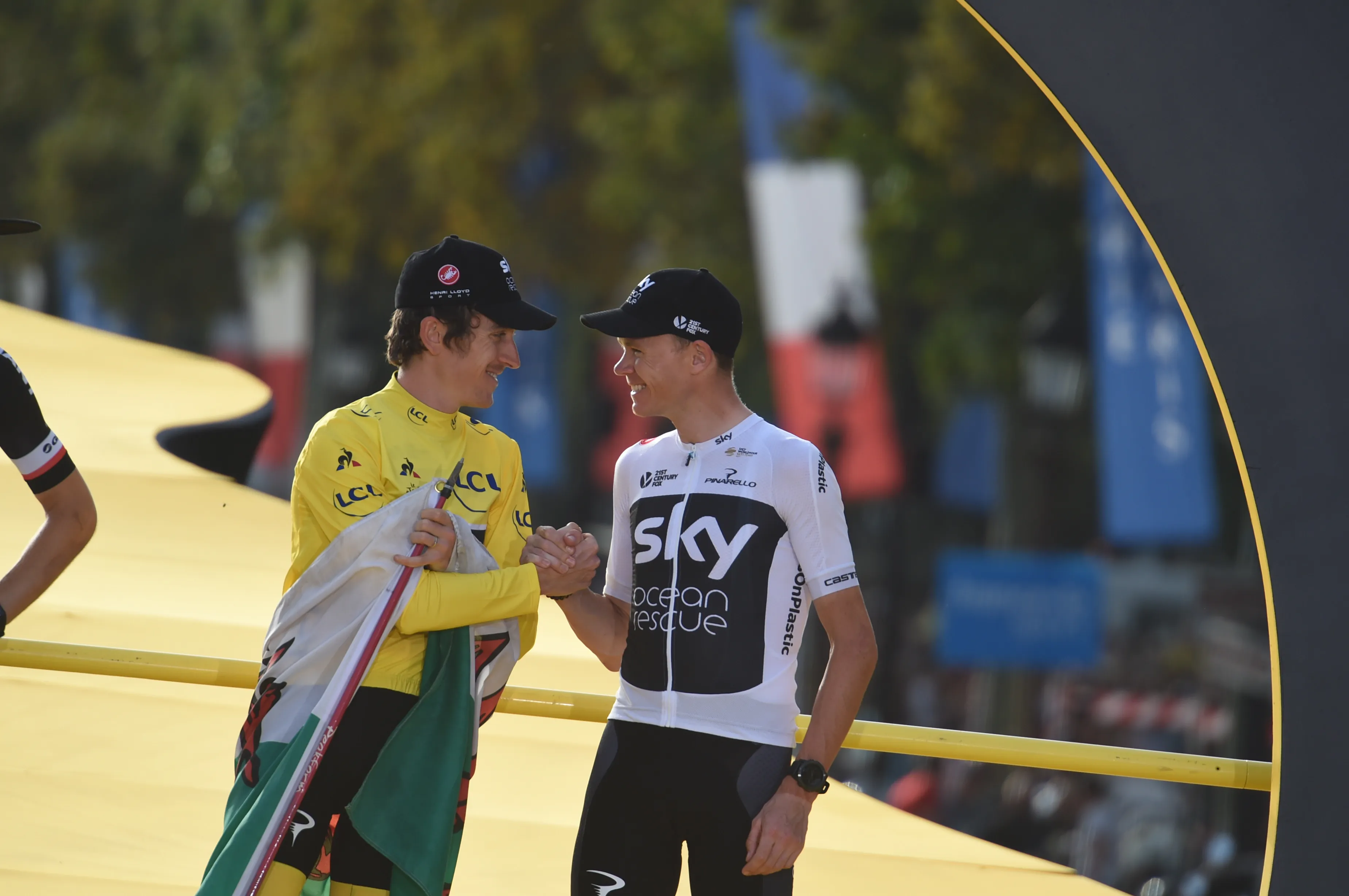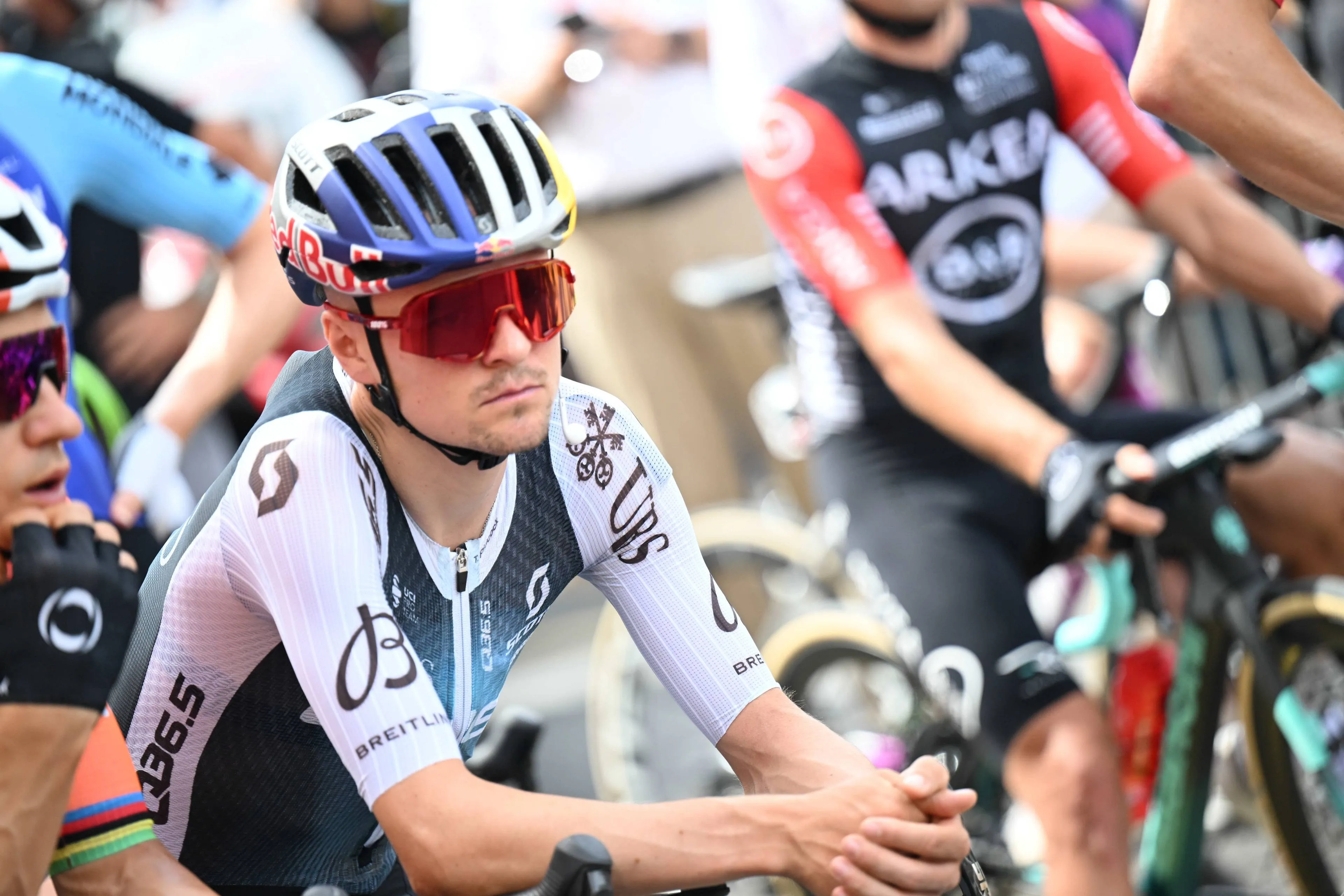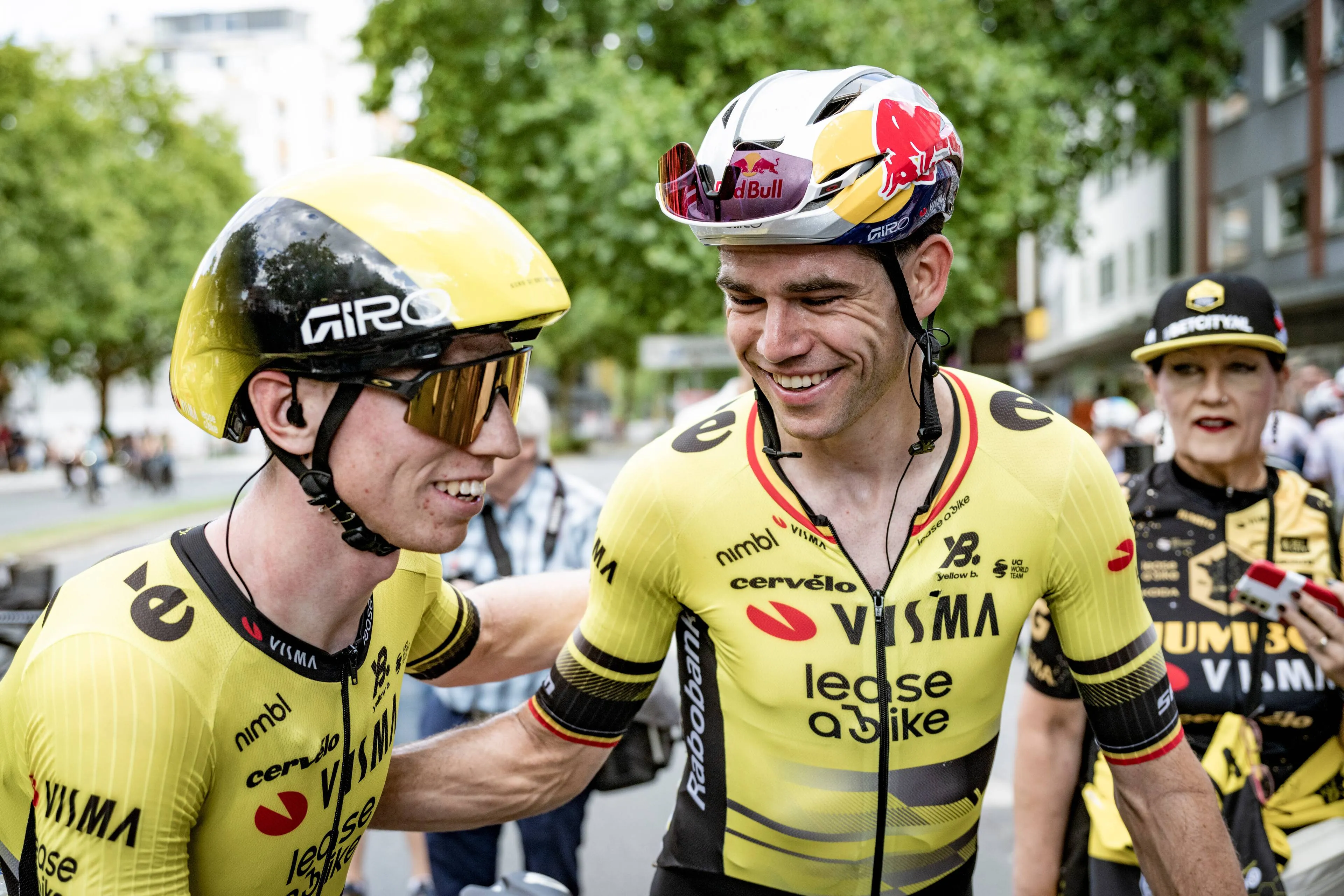ANALYSIS: Is One Cycling the future of cycling? A deep dive into the project's implications on the Tour de France, riders and fans
CyclingSunday, 23 February 2025 at 11:45
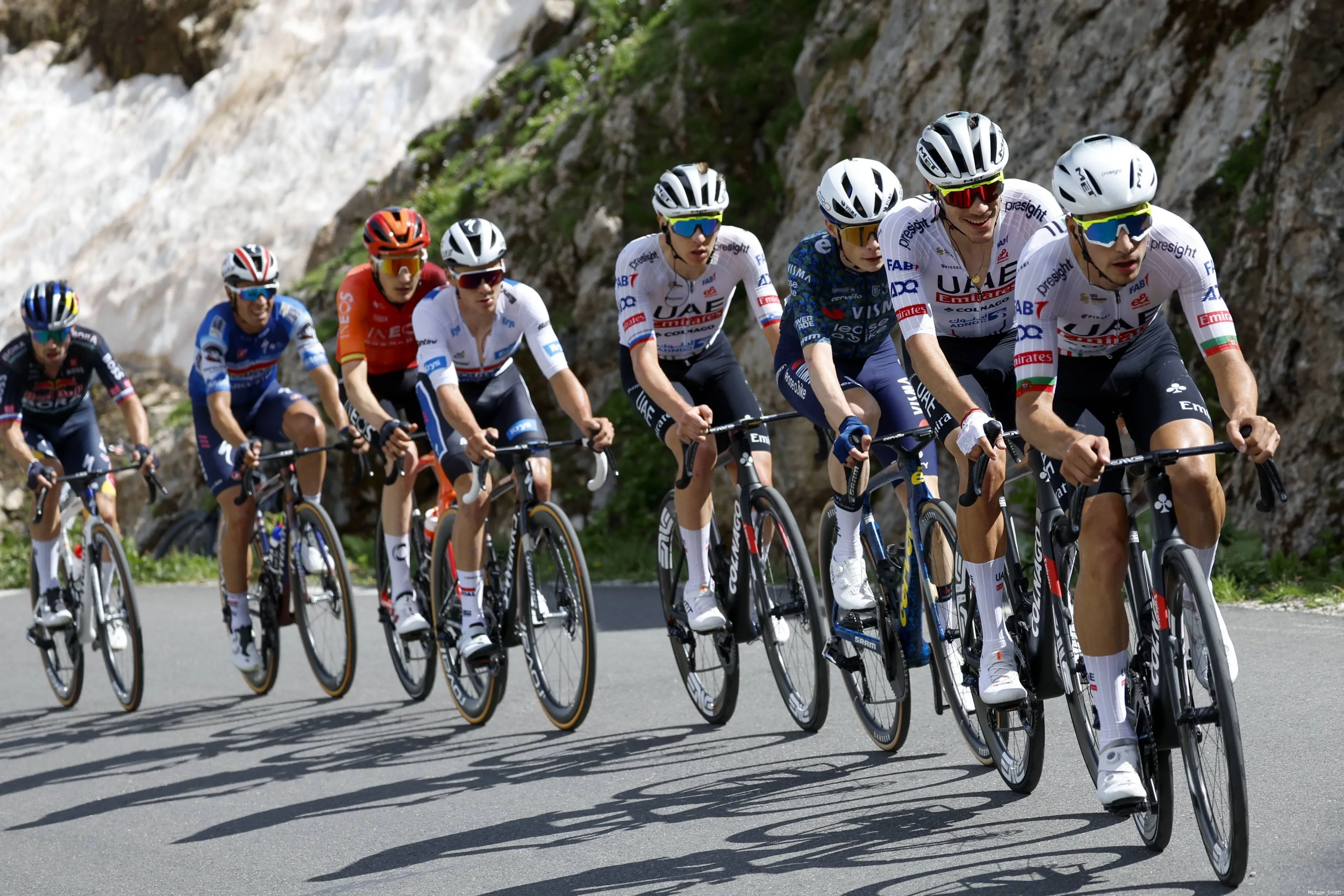
One Cycling is generating as much excitement as it is
controversy in the world of cycling. The project will seek to reshape
professional cycling by introducing a new economic model, race formats, and an
ambitious calendar designed to bring teams, riders, and fans closer together in
a modernised cycling universe.
With substantial financial backing from Saudi Arabian
investors and endorsements from some of the most important figures in cycling,
the project has been hailed by some as a necessary revolution in a sport long
criticised for its ‘old fashioned’ structure.
Read also
At the same time, it faces fierce opposition from
established organisers and raises significant questions about ethics,
tradition, and the future of cycling.
So, let’s take a moment to look at One
Cycling, what is the project? What are its strengths and weaknesses? And what
other sports have taken on similar initiatives?
What is the vision?
So, the financial vision underpinning One Cycling is undeniably
one of its most compelling strengths. At a time when professional cycling teams
have traditionally relied on sponsorship deals (a model often seen as unstable)
the promise of a direct cash incentive has got most teams attention and
rightfully so.
Read also
Reports from Cyclist indicate that the project boasts
a budget of an eye watering $300 million. $300 million! This investment is
designed to provide teams with a level of financial stability that could allow
them to invest more in performance, infrastructure, and innovation.
The likes of Team | Visma-Lease a Bike CEO Richard Plugge,
have been at the forefront of promoting this idea, arguing that “cycling is a
sleeping giant” in need of a better, more secure financial foundation
(Cyclist).
The proposed model is not merely about handing out cash; it
represents a broader rethinking of how teams earn revenue. Rather than
depending solely on sponsors, teams could potentially receive earnings from a
share of broadcast rights, ticket sales, and VIP packages.
Read also
So far, so good then? Yes, at this stage you can see why the
sport could massively benefit from this.
The project would also see a shift in the style of races,
which is where some fans and teams might start questioning things. Moving away
from the traditional long-stage races, the project envisions a series of short,
city-centre criterium races that could be hosted on F1-style circuits.
This format promises to bring cycling into urban
environments where spectators have the opportunity to see the race multiple
times in one day. The idea is to create a concentrated, engaging spectacle that
maximizes ticket sales and enhances the overall fan experience.
Read also
This is definitely a first check point for where cycling
must be careful not to lose the sport in search of business gains. How far should
the sport go in its bid to earn more income?
That brings us to the resistance to One Cycling.
Who is against the project?
Despite these promising innovations, One Cycling faces
significant challenges, not least of which is opposition from the traditional
organisers, like ASO (the group behind the Tour de France and the Vuelta a Espana)
and RCS, which organises the Giro d’Italia, who have unsurprisingly not backed
the initiative.
The Tour de France director, Christian Prudhomme, has been
vocal in his dismissal of the initiative, stating that it “doesn’t interest”
him and implying that the project risks undermining the century-old traditions
that define the sport when talking to Cyclism'Actu.
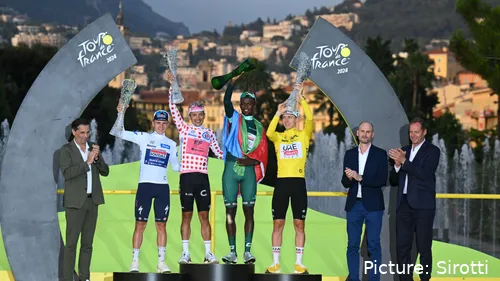
What would One Cycling mean for the Tour de France?
Whilst the organisers of grand tours were always going to
have this point of view, they do have a point. Cycling is a sport beautifully
rich in culture and tradition, and any initiative should not move away from
that but instead enhance it in the modern era.
A critical aspect of the One Cycling project is its proposed
integration with the existing UCI framework.
UCI chief David Lappartient has stated that the new races will operate within
the current system, ensuring that rider safety, regulatory compliance, and
established competition rules are maintained.
Read also
However, many operational details remain ambiguous,
especially concerning the relationship between One Cycling and the UCI points
system, which is already confusing enough! This system, which is central to
determining team rankings and status, could be disrupted by a parallel series
that does not align neatly with the traditional calendar.
And we all know that the last thing cycling needs is to make things even more
complex.
The lack of clarity over scheduling, team relegation, and
rider eligibility introduces an element of uncertainty that could lead to
logistical conflicts and governance issues. If One Cycling’s races end up
clashing with established events or if the allocation of UCI points becomes
contentious, the project may face additional regulatory challenges. Ultimately,
the promise of innovation must be balanced with the need for continuity.
Read also
Can cycling learn from other sports?
To understand the potential trajectory of One Cycling, it is
useful to compare it with similar initiatives in other sports.
The European Super League in football, for instance, was
conceived as a way to generate new revenue streams and offer a more match ups
between Europe’s top teams. Just ask any football fan how that news was
received.
Although the European Super League quickly collapsed amid
overwhelming fan protests and political backlash, its brief existence provided
valuable lessons on the perils of alienating the fans and riders. Sport is
becoming more and more about business, but fans and sportsmen will not always
accept that if they can help it.
Read also
Similarly, LIV Golf, another Saudi-backed venture, has made
headlines for its attempt to disrupt the established order in professional
golf. But, the legal battles and regulatory disputes that followed highlight
the risks inherent in any project that seeks to overturn entrenched systems.
Historical examples from within the world of sports show
that this isn’t necessarily a new issue. In the late 1970s, World Series
Cricket, initiated by Kerry Packer, challenged the traditional cricket
establishment with innovations such as coloured clothing and night games.
Although initially met with resistance, many of these innovations were
eventually adopted by mainstream cricket and helped the sport to modernise.
Read also
Likewise, the American Football League (AFL) in the 1960s
challenged the NFL with new ideas regarding play style, marketing, and revenue
sharing, ultimately merging with the NFL to create a more dynamic and
commercially successful league. These cases illustrate that disruptive
initiatives, if carefully negotiated and integrated, can force established
institutions to innovate while preserving the essence of the sport.
One Cycling appears to be attempting a similar balancing
act. And look, there’s no doubt that cycling must find a way to improve it’s
business model in the modern age. But, at what cost?
By pledging to operate within the existing UCI framework,
the project appears to be trying to ensure regulatory continuity while still pushing for
revolutionary changes in race format and revenue models.
The ethical question
Where there’s money, there’s ethical considerations, and
before you know it you’re travelling down a rabbit hole of controversy. On that
note, is One Cycling ethical?
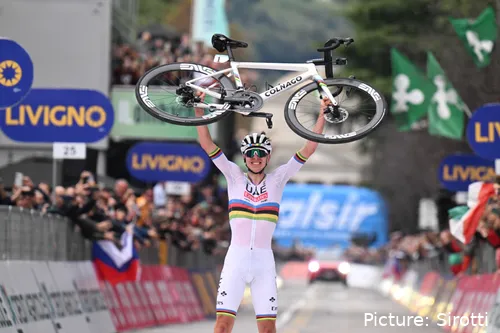
Cycling must not allow itself to become the latest victim of sportswashing
One of the most contentious aspects of the One Cycling
project is its financial backing from Saudi Arabian investors. This connection
has raised serious ethical questions regarding the phenomenon of sportswashing,
where nations use high-profile sports investments to improve their global image
and distract from domestic human rights issues.
Critics argue that by associating with high-profile sports
projects, Saudi Arabia aims to enhance its reputation while diverting attention
from its controversial record on free speech, workers’ rights, and LGBTQ+
issues. This ethical dilemma is of course not unique to cycling; similar
concerns have been raised in connection with LIV Golf and the recent Saudi
investment in boxing.
Read also
The ethical debate surrounding One Cycling forces the
cycling community (and its fans) to consider the broader implications of
accepting such investment. The potential financial benefits and the promise of
a modernised, more stable economic model must be weighed against the risk of
endorsing practices that some see as morally problematic.
For many, the question is whether the transformative
potential of the project justifies the ethical compromises that might come with
accepting funding from sources associated with sportswashing.
How far is cycling willing to go to ensure global growth?
Read also
What does this mean for the fans?
Another critical factor in assessing the future of One
Cycling is the potential impact on fans, who are the beating heart of the sport.
Cycling has traditionally been celebrated as a sport that is accessible and
free to watch in person, with the beauty of thousands of fans lining the Alps at
the Tour being one of the greatest sights in sport.
The new model proposed by One Cycling, with its emphasis on
ticket sales, VIP packages, and concentrated urban races, might impose
financial barriers that alter the fan experience. Yes, the Tour’s finish in
Paris is always an incredible spectacle, but would 21 stages around Paris or
other cities really be the best idea?

The fans are the heartbeat of professional cycling
Moreover, the commercial viability of the project will
depend on the ability to negotiate new broadcast deals. The existing system of
broadcast rights is deeply entrenched and varies significantly by country, with
regulations in places like France requiring certain races to be shown on
free-to-air channels. Just ask the UK fans, who will have to get their wallet
out and cough up £31 a month from 2026 onwards to watch cycling with ITV and
Eurosport leaving the sport.
What is the long term picture?
The long-term success of One Cycling hinges on several
interconnected factors.
First, the project must secure widespread buy-in from the
teams and governing bodies that have long held sway over professional cycling.
Without the support of key stakeholders like ASO, RCS, and influential European
teams, the league may struggle to achieve the critical numbers required for
sustainability.
Read also
Another significant challenge lies in the logistics of
scheduling and integrating the new races with the established cycling calendar.
The cycling season is already packed with races and introducing a parallel
series of city-centre races could create a scheduling nightmare.
That’s not to say that all of the ideas put forward by One
Cycling are poor, they’re certainly not. It is time for cycling to change, but
the way it changes must not destroy the culture and tradition of the sport.
Looking to the future, the success of One Cycling will
depend not only on its ability to secure investment and negotiate broadcast
deals but also on its capacity to navigate the ethical and cultural debates
that its funding model has ignited. The project must balance the promise of a
modernised, economically robust future with the need to honour the traditions
and values that have sustained cycling for over a century.
Read also
It is only natural for sports fans to be dismissive of
change, but One Cycling is definitely worth giving the time to consider. It’s
got ambition, it’s got the funding, and it’s got some of the most influential
minds in the sport already on board. It’s ticking a lot of boxes already, but
it now must find a way to convince the rest of the sport that it’s ambition
will not see the sport stolen away from it’s most important factors: the
traditions and the fans!
Maybe there’s another way for One Cycling to go about their initiative,
or at least some other ideas for them to consider. For instance, cycling fans
and riders are currently up in arms over the UCI’s handling of rider safety
after a number of disastrous incidents to kick off 2025.
Read also
One Cycling is never going to be able to entirely ‘fix’ the
concerns of rider safety, but what if they could create a strategy and clear
game plan that would help to eliminate some of the nasty incidents we are
becoming all too accustom too. If One Cycling was able to show the sport that
they are more than just a business model, they might find more people jumping
on board.
The coming months and years will be critical in determining
whether One Cycling can overcome the obstacles in its path, or if it will serve
as yet another cautionary tale in the long history of attempted sporting
revolutions.
claps 1visitors 1
Just in
Popular news
Latest comments
- Great champion Remco but his profile is more suitable for Ardennes-like races and tour with no very hard climbs. Not only Tadej and Vingegaard, there are a lot of younger cyclists (del Toro, Ayuso, maybe Seixas, Nordhagen and others) that will soon be big GC boys.
 maria2024202418-02-2026
maria2024202418-02-2026 - Evenopoel 1st real test, and he failedZamorano18-02-2026
- Remco is not the natural climber that riders like Tadej or Jonas are, no matter how much he trains and prepares for it. Yes, you can TT your way up moderately steep hills, but when the gradient gets super steep, he just can't keep up.
 santiagobenites18-02-2026
santiagobenites18-02-2026 - So against the better riders and a long mountain, Remco cracked. Sorry but way away from Pog and Jonasabstractengineer18-02-2026
- “I was portrayed as the devil" Bruyneel was really a talented team manager. His minor flaws: "coordinated, well-funded, and sophisticated doping regime" "hand-in-hand in implementing the team-wide doping programme" "was involved in trafficking and administering prohibited substances and methods, including EPO, blood transfusions, testosterone, human growth hormone, and cortisone. Teammates testified that nothing significant happened without Bruyneel's knowledge and approval." "fostered an environment where doping was considered a "fact of life" and necessary for success, effectively making it a condition of survival on the team. He also participated in or assisted with the cover-up of positive tests and doping violations." Those quotes show Bruyneel's true talent.Cyclingnut18-02-2026
- Fed up hearing "their" voicesslappers6618-02-2026
- When you join Ineos , learning , time , no pressure go out of the windowabstractengineer18-02-2026
- The UCI screws up againcaptmike18-02-2026
- No matter what people say - I'll watch it. And I bet all the complainers will do it too....averagecyclist18-02-2026
- Exactly what I'm thinking about it. Moreover Van Glis had a lot of time to rethink his situation but decided to stay where he was.averagecyclist18-02-2026
Loading
Write a comment







